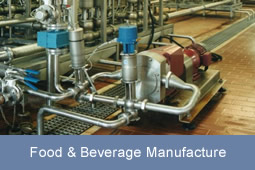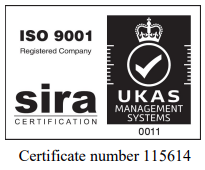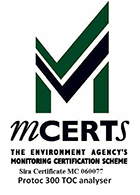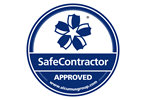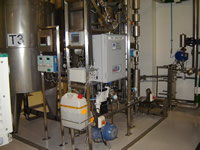 The EPR regulations which replaced the IPPC regulations, were introduced in May 2009 for qualifying companies within the UK industrial sector and October 2009 within the water sector. They progressively require industry to minimise waste, reduce product loss and implement improved process control. The legislation requires the operator to self-monitor processes and discharges, to demonstrate effective control with particular emphasis on EPR compliance and prevention. The regulating Agency will operate a point scoring system to assess operators under the OMA-3 program and this is used to identify how well a company is managing their processes and possibly identify areas for improvement.
The EPR regulations which replaced the IPPC regulations, were introduced in May 2009 for qualifying companies within the UK industrial sector and October 2009 within the water sector. They progressively require industry to minimise waste, reduce product loss and implement improved process control. The legislation requires the operator to self-monitor processes and discharges, to demonstrate effective control with particular emphasis on EPR compliance and prevention. The regulating Agency will operate a point scoring system to assess operators under the OMA-3 program and this is used to identify how well a company is managing their processes and possibly identify areas for improvement.
The Environmental Permitting Regulations require industry to install instrumentation (MCERTS approved where available) to report water quality. EPR compliance monitoring may include automatic water sampling, flow measurement, pH, turbidity and Total Organic Carbon (TOC) water analysis. Industry will need to identify point of source emissions, take steps to correct inefficient control and alarm unacceptable process deviations. Although the legislation focuses on environmental improvement, good housing keeping also makes a lot of sense. Optimisation of process control minimises waste, reduces treatment costs and ultimately saves money.
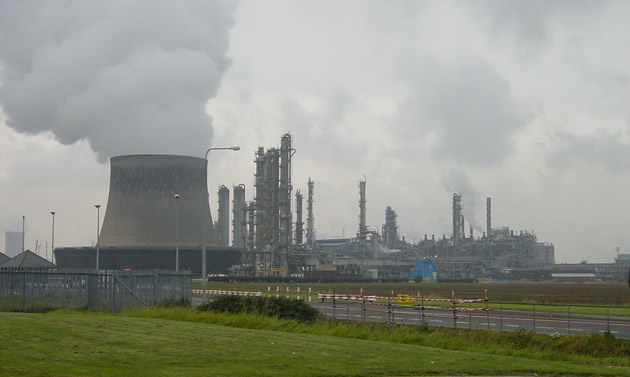
Food & Beverage Industry Measurement Parameters
The legislation also qualifies which parameters should be used for different type of industrial discharge. Determinants are specified for both laboratory and on-line continuous measurement. The Food and Beverage sector was one of the first to implement the legislation. Currently parameters such as BOD and COD are used to regulate discharges. Although legislation has maintained these measurements for discrete water analysis, the importance of continuous measurement has now been recognised and Total Organic Carbon (TOC) has been identified as an important on-line parameter. To give operators the confidence to choose instrumentation that is fit for purpose, the Agency has introduced a product evaluation scheme referred to as MCERTS. Qualifying instrumentation needs to meet rigorous laboratory and field testing to qualify and the manufacturing process must also meet stringent criteria. The use of MCERTS approved instrumentation will assist the Operator to achieve the best possible score, under the OMA-3 assessment.
Financial Payback
Industry has already taken positive steps towards meeting the former IPPC regulations now the Environmental Permitting Regulations. Many have witnessed how such installations can produce dramatic financial and environmental benefit. Real-time monitoring can identify faulty valve sequencing and allow containment of high strength effluent which left undetected, can detrimentally affect trade discharge.
The PROTOC® TOC analyser has been successfully installed within the Brewing, Drinks and Dairy industries to monitor and control high strength effluent and reduce the cost of trade discharge. The Protoc 300 model for Total Organic Carbon (TOC) measurement has been assessed and certified under the MCERTS scheme providing additional confidence to the end user. Instrumentation such as pH and Turbidity meters have also been used to improve process control and minimise waste.
Chemical and energy reduction have recently been identified as key areas where increased efficiency may be realised. Effective coagulation control via feed-back control mechanisms can reduce chemical use and associated costs. Similarly, the use of direct monitoring for ammonium within aerobic treatment can complement existing DO measurement. Controlling aeration as a function of load has clearly demonstrated to be more effective, resulting in significant energy reductions, typically of 20-30%.
More information? Get in touch!
If you would like more information relating to this product or the services Pollution PPM can provide, please Contact Us.
For International enquiries, please contact one of our dealers listed on the following page - International Dealers







